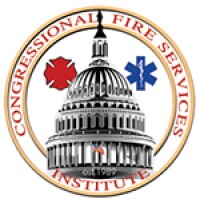The 113th Congress has come to an end, with lawmakers returning home after a brief “lame-duck” session of Congress. Before leaving for the year, Congress passed H.R. 83, the Consolidated and Further Continuing Appropriations Act. The bill will fund the federal government through the end of the current fiscal year - with the exception of the Department of Homeland Security (DHS). Due opposition to the White House’s immigration policy, Congressional leaders decided to fund the department with a continuing resolution. The short-term spending bill will fund the department until February 27th at current levels.
Unfortunately, since a continuing resolution only allows DHS to carry on its basic day-to-day activities, many programs under the department’s jurisdiction will be halted or delayed, including the Assistance to Firefighters (FIRE) and Staffing for Adequate Fire and Emergency Response (SAFER) grant programs. When the 114th Congress convenes in January, one of the first actions the new Congress will have to undertake is passage of a Fiscal Year 2015 spending bill for DHS in order to fund programs and agencies within the department, including these important fire service grant programs. Unfortunately, this will likely result in a delay of the implementation of the Fiscal Year 2015 grants.
While the continuing resolution may be a setback, the nation’s fire and emergency services actually had a number of important victories on Capitol Hill over the past year. Early drafts of H.R. 2642, the Federal Agriculture Reform and Risk Management Act (commonly referred to as the Farm Bill) contained language which could have overturned “fire-safe” cigarette laws in all 50 states. While this was not the intent of the provision, it was written in a manner that had potential unintended consequences for fire safety. At the urging of the nation’s fire service organization, Congressman Frank Lucas (OK-3) and Senator Debbie Stabenow (MI), chairs of House and Senate Agriculture Committees, agreed to remove the offending language in order to protect the existing state laws.
In June of this year, the Department of Defense (DOD) suspended two important fire service programs: the Federal Excess Property Program (FEPP) and the Firefighting Property (FFP) Program. The two programs, which transfer surplus equipment from DOD to state forestry agencies and local fire departments for the purposes of fighting wildland fires, provide critical resources to firefighters across the county. Unfortunately, DOD deemed the equipment did not meet emission standards set by the Environmental Protection Agency (EPA) and therefore could not be transferred to non-DOD entities. At the urging of the national fire service organizations, a bipartisan group of 25 Senators and 64 House members sent a letter to Defense Secretary Hagel asking for the issue to be resolved. On August 13th, DOD announced that FEPP and FFP would resume with no changes made to either program.
Earlier in the year, there was concern about how the shared responsibility provisions (popularly known as the “employer mandate”) under the Patient Protection and Affordable Care Act (PPACA) (P.L. 111-148) would affect volunteer fire departments. According to the law, employers with more than 50 full-time employees (or their equivalents (FTE)) must provide health insurance to employees that work more than 30 hours per week. In the past, the Internal Revenue Service (IRS) had ruled that volunteer firefighters who receive nominal benefits from their fire departments (including stipends, end-of-the-year banquets and awards) count as “employees” of fire departments. This past IRS ruling lead to some to believe volunteer fire departments would have to provide health insurance to volunteers that serve more than 30 hours per week at their local fire department. At the urging of the national fire service organizations, Senator Mark Warner (VA) and Congressman Lou Barletta (PA-11) introduced the Protecting Volunteer Firefighters and Emergency Responders Act (H.R. 3685 and S. 1798), legislation ensuring volunteers are not counted as full-time employees under the shared responsibility requirements contained in PPACA.
On February 12th, the IRS released a final rule for the shared responsibility provision of the PPACA. The final rule clarified that fire departments and municipal governments will not need to include volunteers when calculating the number of full-time employees (or full-time equivalents) for the purposes of the law.
These are just a few of the accomplishments of the nation’s fire and emergency services on Capitol Hill. These victories were not accomplished by CFSI alone. The national fire and emergency services organizations work together, and in cooperation with the Congressional Fire Services Caucus, on a daily basis make sure Congress and the White House are aware of the needs and concerns of America’s firefighters. Working in collaboration, we have raised the profile of the nation’s fire service on both ends of Pennsylvania Avenue to ensure that when the fire service speaks, our lawmakers listen.
Going into 2015, the fire service will have several challenges in our nation’s capital. In addition to immediately tackling the FY15 spending bill, the national fire service organizations will be looking at several of important bills. Congressional leaders expect to bring forward tax reform legislation in the new Congress. Any tax bill could have important implications for fire safety, including potential incentives for the retrofit of automatic fire sprinkler systems. Oversight of the Public Safety Officers’ Benefit Program will continue to be a priority, as will legislation promoting the adoption of safe building codes. And with several new members of Congress coming to Capitol Hill, education and outreach will be a priority. Membership in the Congressional Fire Services Caucus has dropped off in recent years, and it will be important to recruit new members who will be actively engaged with the fire service at both the national and local levels.
There is plenty of work for the fire service in the 114th Congress, but by working together, we can achieve more victories in the year ahead.


